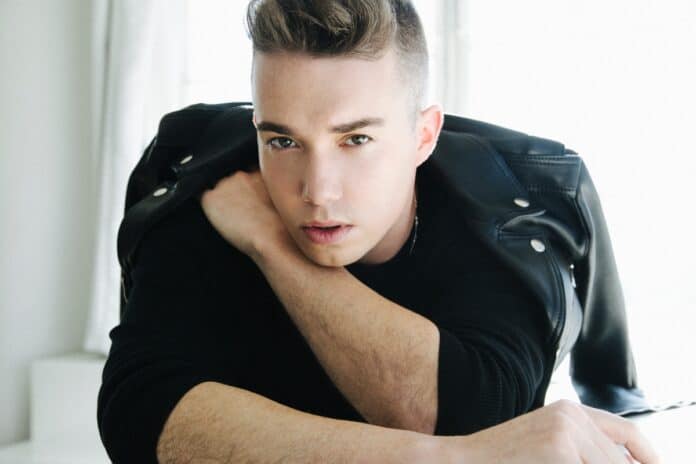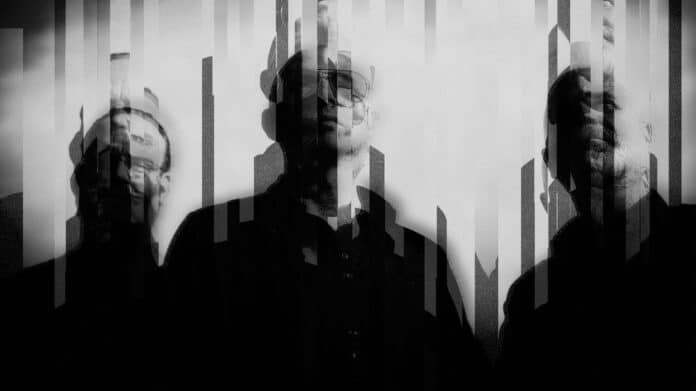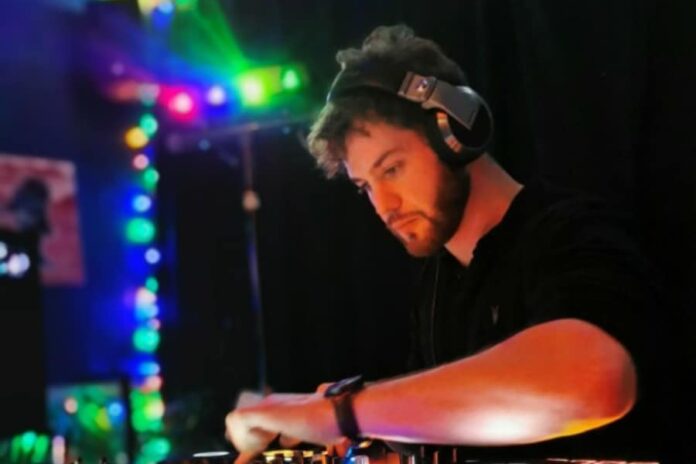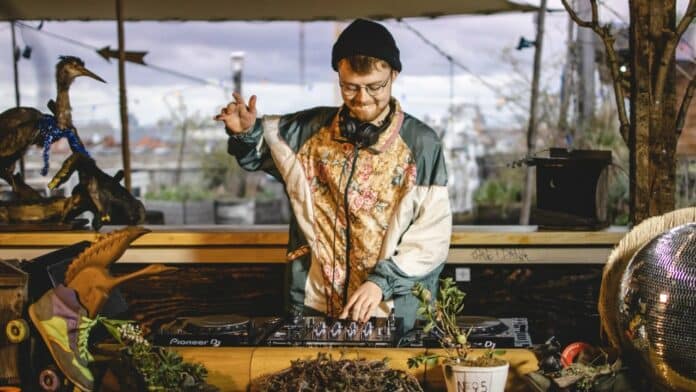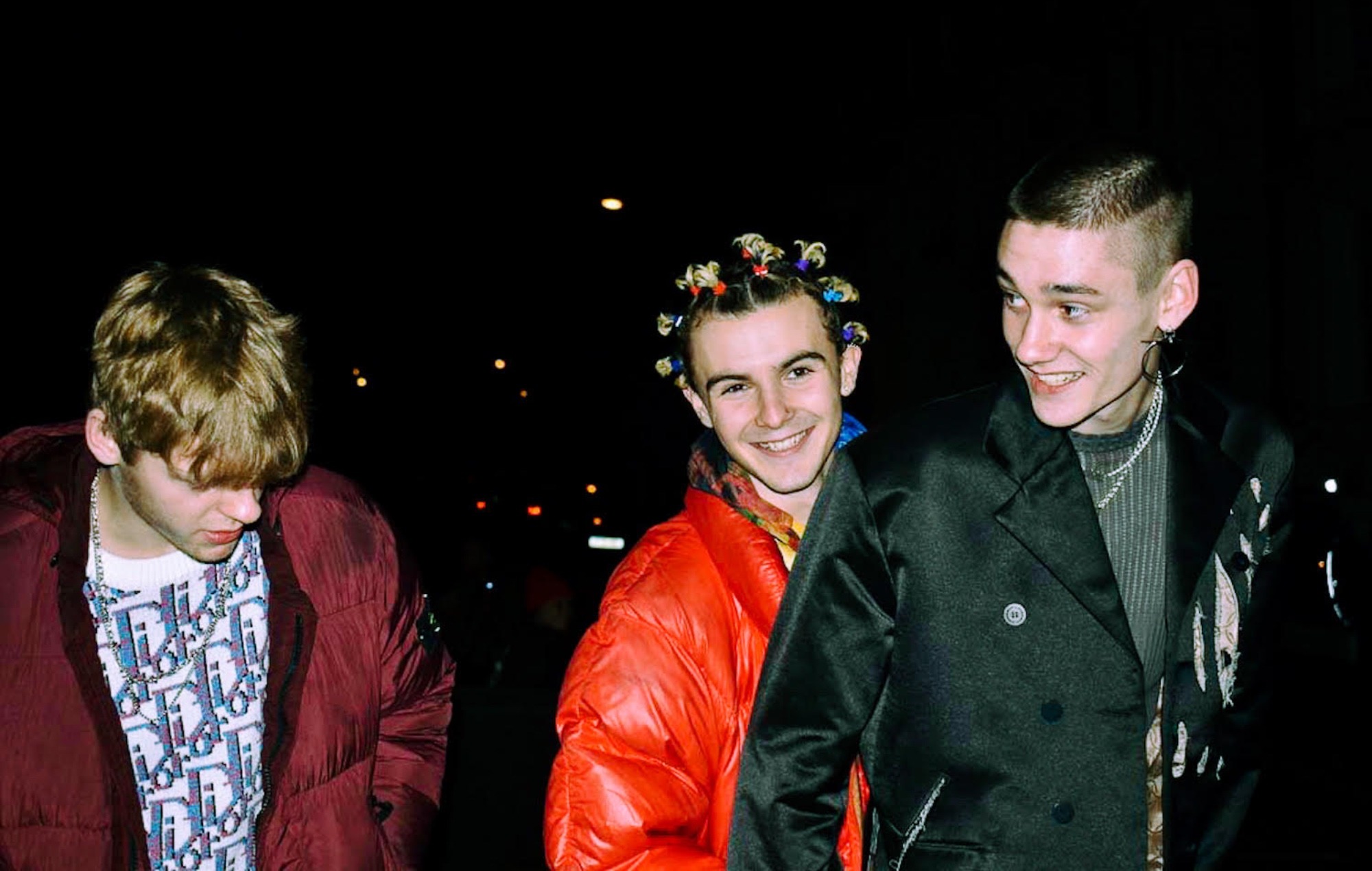
Insincere: viral gang flying the flag for London’s underground rap scenes
Insincere first struck a chord on TikTok when they started to tease their debut single, ‘Angels Don’t Fuck’. In February, the lo-fi hip-hop track, which simmers with quiet rage, racked up over three million impressions across six snippets introducing producer Alex Coulson and songwriters/vocalists Orlando Soundy and Grace Glover as a new and hugely exciting rap collective.
As social media-savvy Gen Zs, Insincere knew that they had to capitalise on their big viral moment. They teased their TikTok audience with the promise of releasing the song quicker if a video of the song received 2000 comments on Instagram. It was a lofty goal: at the time, they only had 300 followers on the platform, but the comments rolled in quickly. They even tried to delete their new fans’ multiple replies to buy themselves more time, but that proved futile. Wisely, they managed to keep their promise and have since been rewarded: ‘Angels Don’t Fuck’ has already surpassed 1 million streams on Spotify.
Viral success has been a long time coming for the London three-piece, who have been working on music together since they were at school. They’ve spent the last seven months solely focused on building the Insincere brand behind the scenes, but they’re now ready to introduce themselves to the world. They’re so committed to their craft that they’re even talking about moving in together, so that each day can be dedicated to working on music.
Over iced oat lattes in a north London cafe, Insincere tell NME about their TikTok success, why they don’t want to be labelled a band, and a shared commitment to never losing sight of their creative control.
NME: You’ve been making music together since you were 14. Who were some of your earliest inspirations?
Grace: “When I started writing, the only person I could see doing poetry and rap was Loyle Carner. So then, suddenly, I’d have a south London accent, and I’d sound like him on the earlier tracks. For me, [a vocal style] was what I had to develop.”
Orlando: “I’d say for all of us, when it comes to who we were first influenced by, those people haven’t changed. It was XXXTentacion for me: he was who I listened to back then and is still who I listen to the most now.”
Alex: “I was going through that same phase. So the first song we made, ‘On My Own’, sounded like an XXXTentacion-type song, but then it took more of a Tom Misch turn. I had a massive phase where I was just producing [songs] on my own just for fun, trying to get better at my shit. I would literally make anything.”
Have you ever felt like part of a specific London scene?
Orlando: “We know people in the underground rap scene, but we don’t really fit into it. I’d say we’re doing our own sort-of parallel thing. Our music doesn’t fit into that [scene], but the fact is that we’re around these people, and we know them.”
Alex: “I think that’s important: we are just creating what we create and not trying to fit in or settle into one scene. We’re just doing our thing. We’re trying to touch different audiences with it, and show that we’ve got range, but we’re not trying to force anything.”
Grace: “Because we’re three individual artists, we’re not like a band, we’re our own artists, so it depends on whoever is taking the lead and we could go in a different direction.”
So you’re not a band?
Orlando: “People have this connotation with bands that they have to include a bass player, a guitar player up on stage doing alternative rock, or something like that. I’m sure it won’t be like that in a couple of years; I think the idea of a band will change maybe to something more similar to what we do, but right now, we don’t want to call ourselves a band.”
Alex: “We literally had this discussion yesterday and somebody labelled us as a ‘creative entity’. We kind of like that because we want to branch out into things outside of music, like fashion, skating, film and art. I think the more people get to know us as artists, the more it becomes obvious that you can’t put a label on us necessarily.”

Where did the idea for ‘Angels Don’t Fuck’ come from?
Orlando: “We finished off last year trying to make an EP, which just turned into a bunch of singles. That EP was based on pieces of art: each song was a response to a piece of art. The next one we’re going to drop is called ‘Nighthawks’, and that’s inspired by a painting [of the same name] by Edward Hopper. But ‘Angels Don’t Fuck’ happened when we took a break from working that way.”
Alex: “We were frustrated that nothing was coming out. We still had to finish the EP and we just had so much music we were sitting on, and we wanted something we could just put out.”
Soundy: “We got on the tube, got back to [Alex’s home studio] and it was a period of time where I was listening to ‘Members Only Vol 4’ by XXXtentacion an album with a lot of sad, guitar-based melody loops; short songs, that kind of vibe. Originally when we were recording it, I was doing the “angels don’t call at night” part and I messed up. I started “angels don’t…” and then just said “fuck” because I messed up.”
What was it like watching the numbers skyrocket when you posted the first teaser to TikTok?
Grace: “As soon as we heard the “angels don’t fuck” part [of the song], we knew that it was going to go off and work really well on TikTok. But that shit doesn’t really mean too much to us. We’re grateful for the support, but numbers are arbitrary. People are giving us 10 seconds of their time, maybe 20 if they want to leave a comment.”
Orlando: “[TikTok] definitely helped us out a lot. I’ve seen so many different artists that might be doing so well on TikTok, but it doesn’t translate to their Spotify [numbers]. You’ve got to figure out how to translate it yourself. If you compare our [TikTok] views to how our songs are doing on Spotify, it’s going pretty well.”
Grace: “We have a big Russian audience [on TikTok], too. There were people in our comments saying they don’t want war.”
How does it feel knowing your music has resonated so widely?
Grace: “Hopefully the music helped them in some way. If our music can do stuff for people, whatever environment they’re in, I think that’s the most amazing thing. We’ve got songs about mental health coming too.”
Orlando: “We got some pretty deep comments from some Ukrainian people saying, ‘I’m listening to this right now: there are literally bombs going off right next to me, but I’m in the bathroom listening to this’. I had no idea how to respond to that.”
“The more people get to know us as artists, the more it becomes obvious that you can’t put a label on us” – Alex Coulson
Grace, you recently said on Instagram that you used to “get bullied” for making music. How did that experience affect you?
Grace: “It put me down for quite a while. But I think that’s what makes you want to prove a point, and we’ve got so much more to prove.”
Orlando: “I have this analogy. Imagine there’s a 40-game football season: to win the league, you’ve got to win your games, you’ve got to score goals, and get on the pitch and all that stuff. I’d say right now we’ve not even done [with] our first game – we’ve just walked on the pitch and taken the kick-off. That’s what it feels like to me.”
Looking to the future, how important is it to retain creative control over Insincere?
Orlando: “There would be no point in us doing anything without [creative control]. Everything around the music is our art, and that’s why people buy into it.”
Grace: “It’s essential. We will never lose creative control. We want to do everything, and we will. And if anyone ever takes it away, they’re done.”

